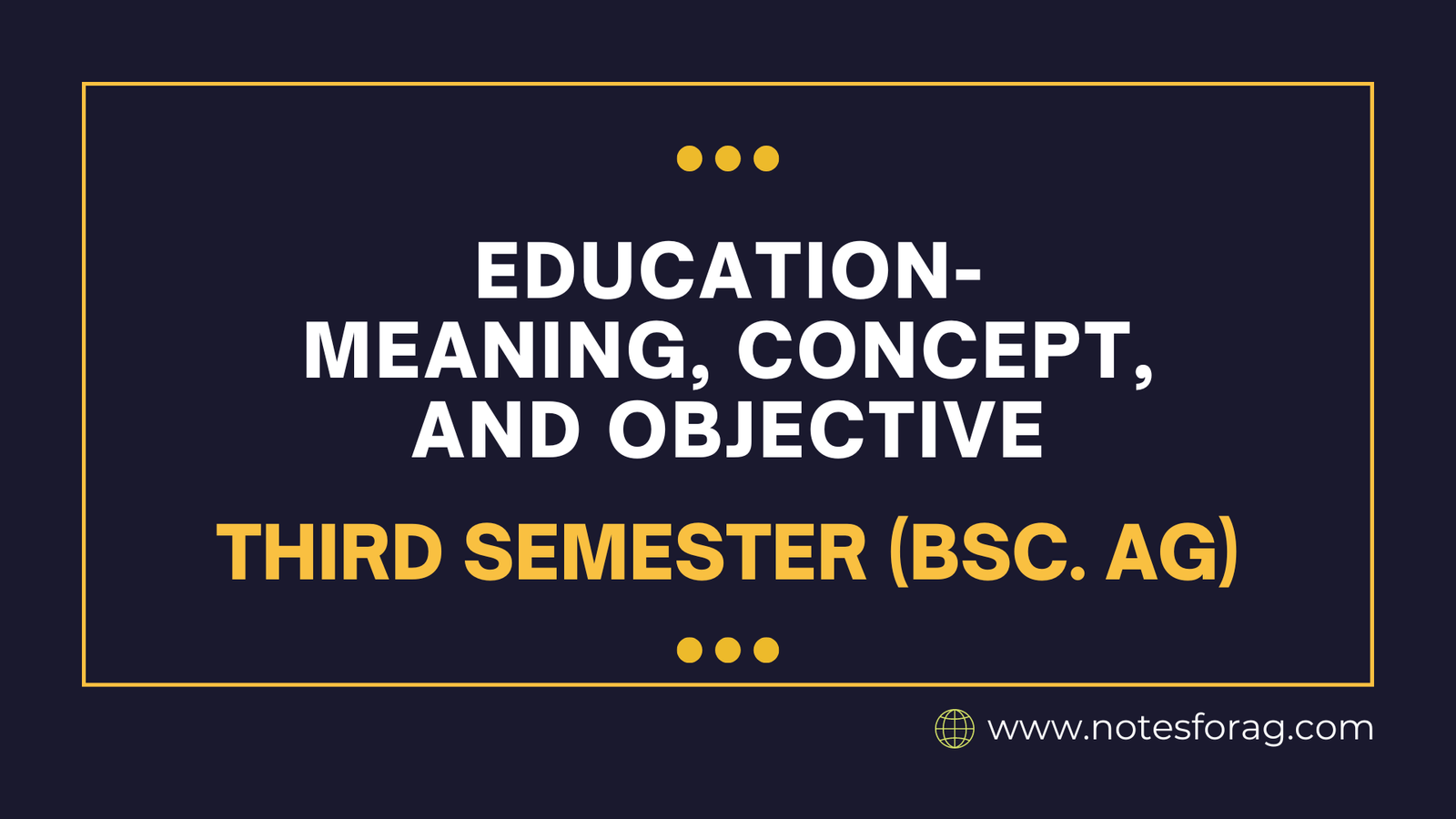Education is a multidimensional process that encourages the development of information, skills, beliefs, and habits. It includes both official settings (schools and universities) and informal contexts (life experiences and personal interactions). Learning and teaching are essential components of it, as are curriculum design, pedagogy, assessment, and the educational environment. It’s key goals include intellectual development, skill acquisition, moral and ethical growth, social and emotional development, cultural awareness, responsible citizenship, personal growth, and the promotion of lifelong learning.
Table of Contents
Meaning of Education
It is a complicated idea that goes beyond the bounds of the classroom. It is fundamentally about assisting learning, or the acquisition of knowledge, skills, values, beliefs, and habits. Teaching, training, storytelling, conversation, and focused study are all examples of this practices. Philosopher John Dewey famously characterized it as “a process of living and not a preparation for future living,” highlighting the importance of incorporating learning into daily life.
Formal education, which occurs in schools or universities, is organized and systematic. It includes a curriculum and is often required by legislation until a particular age. Informal education, on the other hand, takes place outside of official academic contexts. It encompasses learning from family, classmates, books, and even personal experiences.

While schooling refers to the time spent in educational institutions, it encompasses a broader concept. It includes not just academic instruction, but also the development of life skills, moral values, and critical thinking. For example, a child may learn about history and mathematics in school, but they also learn about cooperation, empathy, and problem-solving through interactions with peers and teachers.
Paulo Freire, a renowned educator, maintained that it should be a liberating act, allowing people to think critically about their surroundings and challenge the existing quo. He thought that it should equip people to take an active role in their own lives and in society.
Concept and Types
It is a broad domain that includes many different techniques of transmitting knowledge, skills, and values. It is broadly classified into three types: formal, informal, and non-formal. Each type has a different role in shaping persons and civilizations, contributing uniquely to the overall educational landscape.
Formal education is a structured and methodical approach to learning that is often delivered by organizations such as schools, colleges, and universities. It follows a set curriculum and is distinguished by continual assessment and certification. The basic goal of it is to provide individuals with the fundamental information and abilities needed to efficiently traverse the professional and social worlds.
In contrast, informal education is a less structured and more spontaneous style of learning that takes place outside of traditional educational settings. This form is motivated by experiences, social connections, and personal interests. Examples include learning a new language through talks with native speakers, picking up cooking skills from family members, and obtaining insights from community events. It is essential for personal growth and lifelong learning since it promotes adaptation and practical problem-solving abilities.
Non-formal falls between formal and informal education. It is planned and systematic, but it does not always follow a strict curriculum or result in formal certification. Non-formal education sometimes includes community-based initiatives, vocational training, and adult education classes.
Objectives
It has multiple goals, including comprehensive development at the individual, community, and global levels. It aims to promote personal growth by improving cognitive ability, emotional intelligence, and social skills. This comprehensive approach ensures that students not only study but also develop critical thinking and problem-solving skills, which are required for navigating difficult life circumstances.
It improves communal cohesion by instilling virtues like tolerance, respect, and empathy. It is critical to minimizing socioeconomic inequities and promoting inclusive communities. It helps to establish a more peaceful community by bridging barriers between varied groups, allowing individuals to contribute effectively to collective well-being.
It is a key driver of economic success. It provides individuals with the skills and knowledge they need to enter the workforce, increasing productivity and promoting economic growth. It also promotes innovation by fostering creativity and the implementation of new ideas, both of which are critical for addressing current challenges and driving sustainable development.
Furthermore, it seeks to promote innovation and critical thinking. In today’s increasingly complicated and dynamic environment, critical thinking and innovation are essential. This systems that stress these abilities equip students to adapt to rapid technology breakthroughs and global shifts, assuring their continued competitiveness and ability to contribute to social advancement.
Aligning educational aims with society requirements is critical to tackling future difficulties. As the world changes, this systems must adjust to meet new demands. This involves fostering digital literacy, environmental sustainability, and educational equity. Case studies from diverse countries demonstrate how educational objectives are attained while highlighting best practices and innovative approaches. Finland’s education system, for example, stresses personalized learning and teacher autonomy, which leads to excellent student engagement and achievement.
Finally, the goals of them are broad and dynamic, striving to develop well-rounded individuals, cohesive communities, and flourishing economies. Education, by constantly adjusting to societal needs, can successfully equip individuals to face the challenges of a fast changing society.
Frequently Asked question(FAQ)
What is the meaning of education?
Education is the process of aiding learning, or the development of knowledge, skills, attitudes, beliefs, and habits, using a variety of approaches including teaching, training, storytelling, discussion, and research.
What are the primary objectives of education?
The primary goals of education include intellectual development, skill acquisition, moral and ethical growth, social and emotional development, cultural awareness, responsible citizenship, personal growth, and lifelong learning.
Related Articles

